
Find Help
More Items From Ergsy search
-

Can I apply if I am self-employed?
Relevance: 100%
-

Can I apply for Universal Credit if I am self-employed?
Relevance: 92%
-
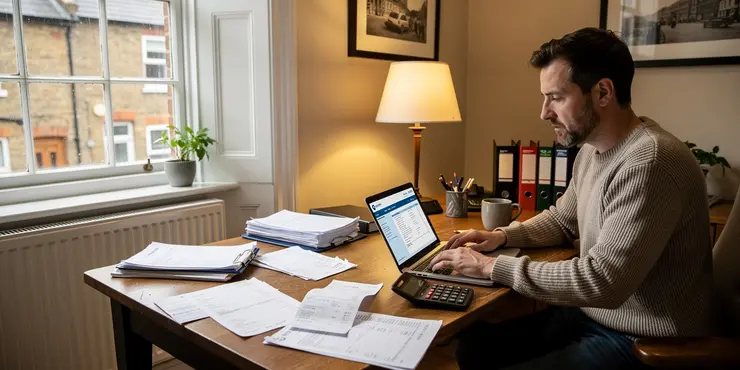
Can I file my taxes online if I'm self-employed?
Relevance: 87%
-
Can I get the basic State Pension if I’m self-employed?
Relevance: 86%
-
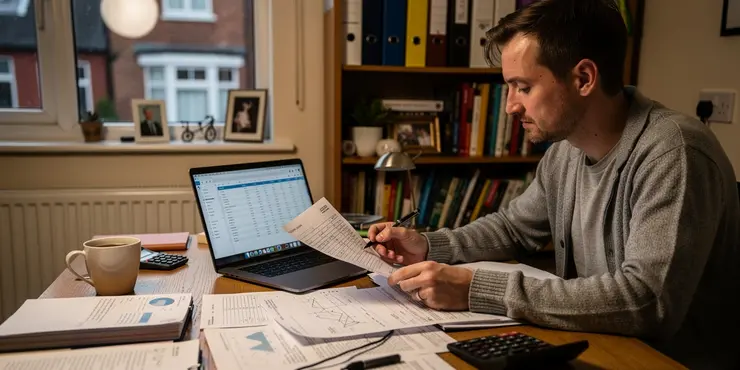
What if I'm self-employed and my income varies?
Relevance: 85%
-

What is the minimum income floor for self-employed claimants?
Relevance: 46%
-
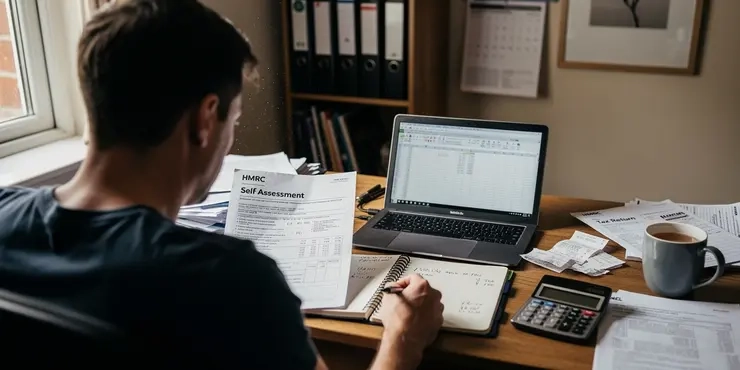
Can I get a tax refund even if I am self-employed?
Relevance: 43%
-
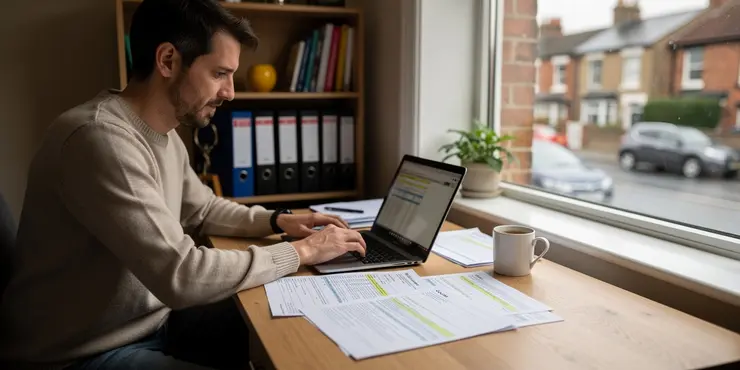
Can I file my taxes online if I'm self-employed?
Relevance: 43%
-

Do gig workers qualify for retirement benefits?
Relevance: 35%
-
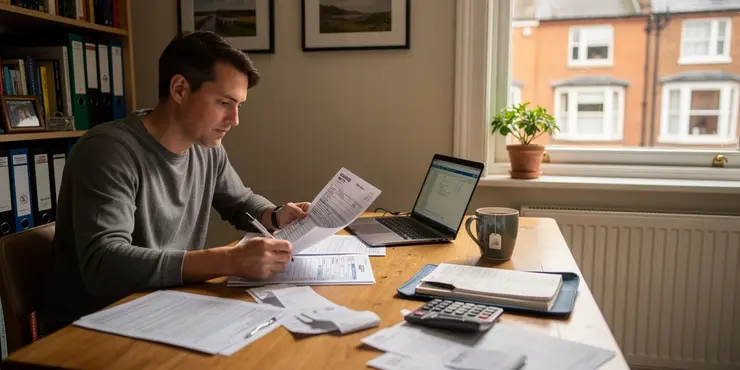
Who needs to file a Self Assessment tax return?
Relevance: 33%
-

Upcoming Changes to Parental Leave Policies in the UK
Relevance: 32%
-
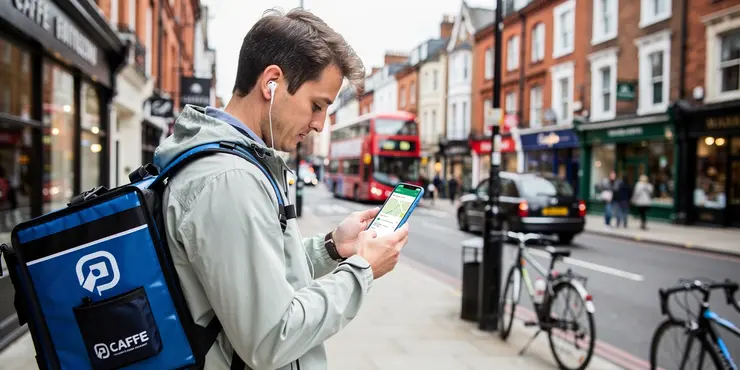
Do gig workers have access to unemployment benefits?
Relevance: 31%
-

Universal Credit Adjustments: What Recent Changes Mean for Claimants
Relevance: 31%
-

What information do I need to complete my Self Assessment tax return?
Relevance: 29%
-

Who is eligible for the National Living Wage?
Relevance: 28%
-

How do I complete my Self Assessment tax return?
Relevance: 28%
-
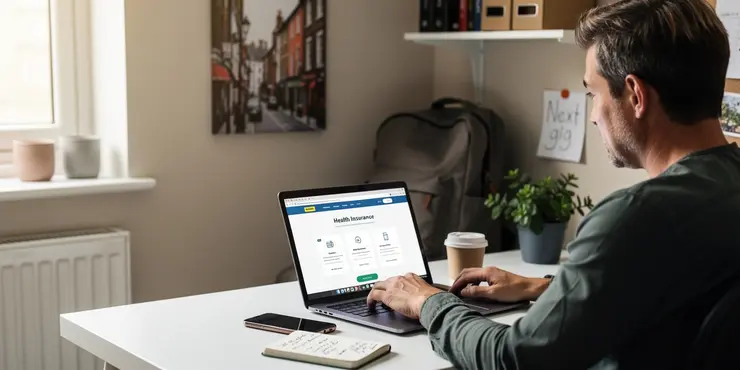
Can I receive health benefits as a gig worker?
Relevance: 26%
-
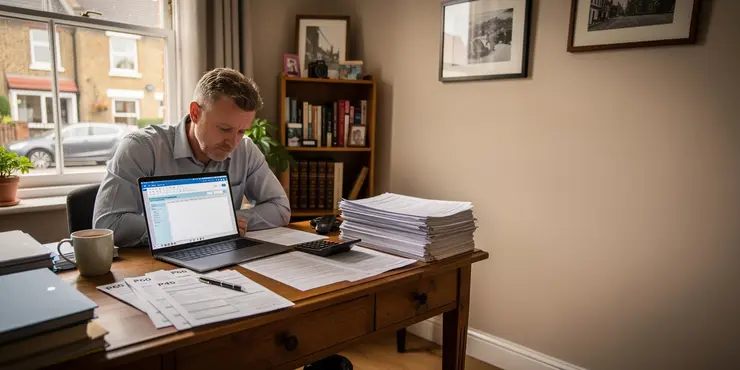
How do I calculate my tax bill?
Relevance: 26%
-

Can UK citizens work in France or Spain without a visa?
Relevance: 25%
-

What is a Self Assessment tax return?
Relevance: 25%
-

What are my rights as a Gig Worker?
Relevance: 25%
-
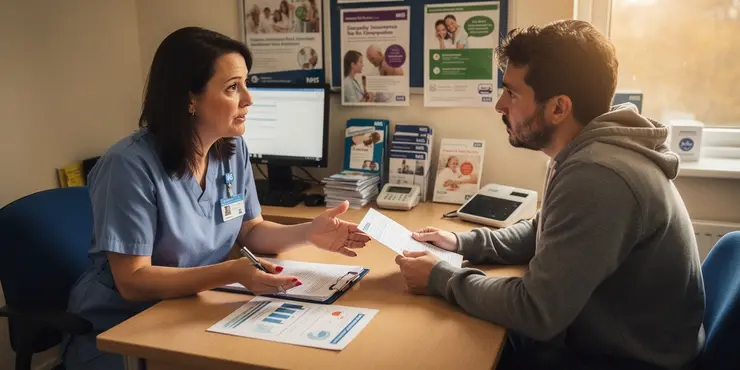
Is there a change in National Insurance rates for 2026?
Relevance: 24%
-
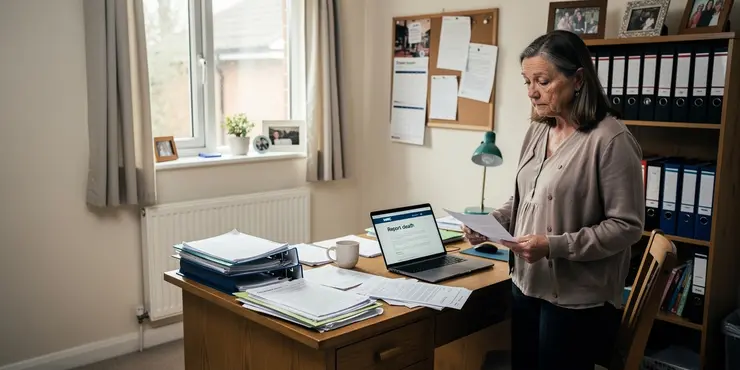
How do I notify HMRC of someone’s death?
Relevance: 24%
-

How do I start filing my taxes online?
Relevance: 24%
-
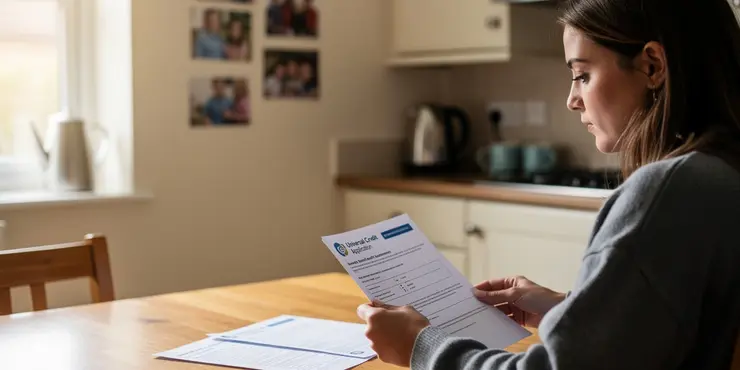
What documents are required to apply for Universal Credit?
Relevance: 23%
-
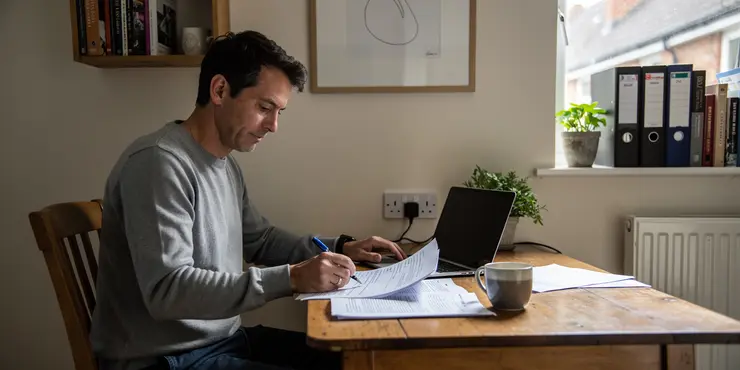
Do I need an accountant to file a Self Assessment tax return?
Relevance: 23%
-

Starting your online tax return
Relevance: 23%
-
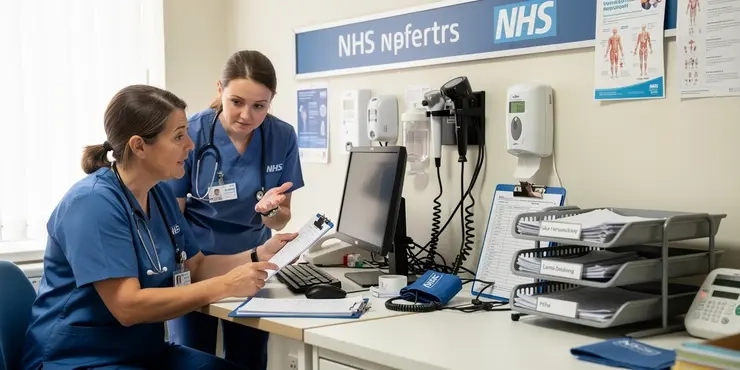
Why did I receive a tax refund letter from HMRC?
Relevance: 23%
-

How many National Insurance contributions do I need for the basic State Pension?
Relevance: 23%
-

Who is eligible for a Time to Pay arrangement for Self Assessment?
Relevance: 23%
-

Are there free options for filing taxes online?
Relevance: 23%
-
What if I have gaps in my National Insurance record?
Relevance: 23%
-
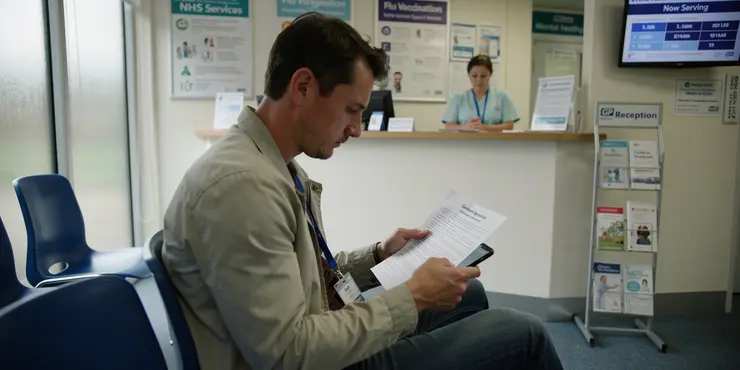
Am I considered an employee if I am a gig worker?
Relevance: 23%
-

My first Self Assessment tax return
Relevance: 21%
-

What should business owners expect from income tax changes in 2026?
Relevance: 20%
-
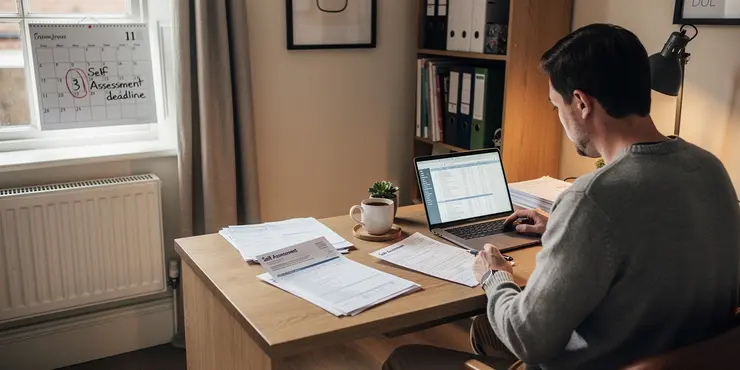
When is the deadline for submitting my Self Assessment tax return?
Relevance: 19%
-

Do gig workers have the right to unionize?
Relevance: 19%
-

Are gig workers entitled to workers' compensation?
Relevance: 19%
-
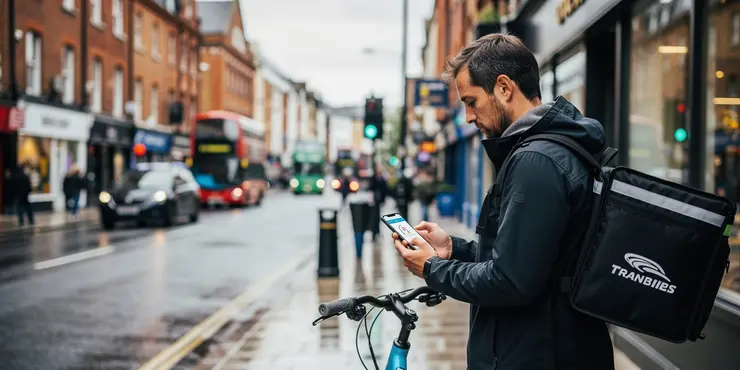
Are gig workers protected against wrongful termination?
Relevance: 19%
-
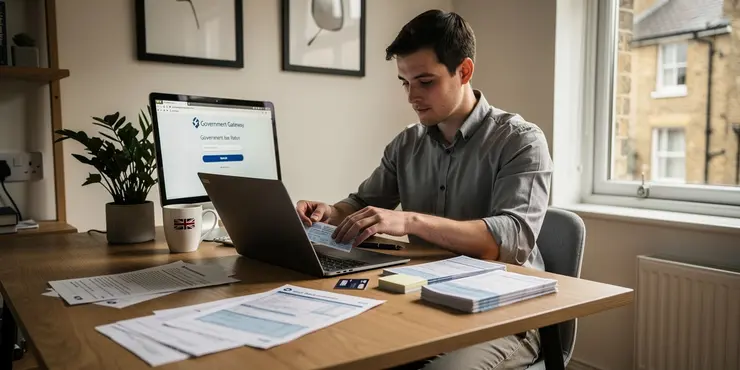
What documents do I need to file my taxes online?
Relevance: 19%
Introduction
If you are self-employed in the UK and considering applying for financial products, benefits, or other opportunities, you may wonder how your employment status affects your application. Being self-employed often requires providing different types of documentation compared to salaried employment, but it does not inherently disqualify you from applying for various programs or financial products.
Understanding Self-Employment
Self-employment in the UK can include a range of professions such as freelancers, contractors, sole traders, and business owners. As a self-employed individual, you manage your own business and take responsibility for its success or failure. This status requires you to report income and expenses using a Self Assessment tax return with HM Revenue and Customs (HMRC).
Applications for Financial Products
When applying for financial products, such as loans or mortgages, self-employed applicants need to demonstrate their ability to repay. Lenders typically require two to three years of financial records, such as SA302 forms, tax year overviews, and business accounts. Proof of a stable and adequate income over a sustained period is crucial for lenders to evaluate your creditworthiness.
Benefits and Support
If you are self-employed and seeking government benefits or support, eligibility criteria may differ from those who are employees. For example, when applying for Universal Credit, you're expected to report income and expenditure at least every three months. The amount of Universal Credit you may receive can depend on your reported income, family circumstances, and other factors.
Grant and Funding Applications
For those interested in business grants or other funding opportunities, self-employment does not exclude you. Many grant programs are designed to support small businesses and entrepreneurs. It's essential to prepare a comprehensive business plan, financial forecasts, and demonstrate how the grant will support business growth or innovation.
Documentation Requirements
Documentation is a critical aspect of applying for most products or support as a self-employed individual. Typical forms of required documentation include your Self Assessment tax returns, bank statements, proof of business operations, and any contracts or invoices that substantiate your income. Keeping meticulous records is crucial to streamline application processes.
Professional Advice
If you are uncertain about your eligibility or how to prepare your application, consider consulting with a financial advisor or accountant. Professionals can offer tailored advice based on your unique situation, ensuring you meet application requirements effectively.
Conclusion
In conclusion, being self-employed in the UK should not deter you from applying for financial services, government benefits, or grants. Proper preparation, thorough documentation, and understanding specific requirements are key to successful applications. Stay informed about the various opportunities available to self-employed individuals and seek professional advice if necessary.
Introduction
If you work for yourself in the UK and want to apply for money help, benefits, or other opportunities, you might wonder how your work status affects your application. Working for yourself is different from having a regular job. You might need to show different papers, but you can still apply for many things.
Understanding Self-Employment
In the UK, self-employed people can be freelancers, contractors, sole traders, or business owners. This means you run your own business. You are the boss and are responsible for your business doing well or not. You must tell HM Revenue and Customs (HMRC) about your money and spending each year.
Applications for Financial Products
When you want to borrow money, like getting a loan or buying a house, you need to show you can pay it back. Lenders, or people who give you loans, usually want to see your money records from the past two or three years. Important papers include SA302 forms, tax overviews, and business accounts. You need to show a steady money flow to prove you can pay back.
Benefits and Support
If you work for yourself and need government help, the rules might be different compared to regular employees. For example, when asking for Universal Credit, you must tell how much you earn and spend every three months. The help you get depends on your earnings, family, and other factors.
Grant and Funding Applications
If you want help like business grants or money for your business, working for yourself does not stop you. Many programs help small businesses and new ideas. You must show a good business plan, future financial plans, and say how the grant will help your business grow.
Documentation Requirements
Papers are very important when applying for products or help if you work for yourself. You usually need to show your Self Assessment tax papers, bank statements, and proof of your business, like contracts or bills. Keeping good records makes applying easier.
Professional Advice
If you are unsure about how to apply or if you can apply, you can talk to a money expert or an accountant. These professionals can give you advice for your situation and help you meet the application needs.
Conclusion
To sum up, working for yourself in the UK should not stop you from asking for money help, benefits, or grants. Good preparation, having the right papers, and understanding what you need to do are important. Stay informed and get advice if you need to.
Frequently Asked Questions
Can I apply if I am self-employed?
Yes, self-employed individuals can apply, but additional documentation may be required.
What documents are needed to apply if I am self-employed?
Typical documents include tax returns, business registration, and financial statements.
Do self-employed individuals face different application requirements?
Application requirements may vary, often requiring proof of income and business legitimacy.
Is there a minimum income requirement for self-employed applicants?
Income requirements can vary based on the application type and program; check specific guidelines.
Can self-employed income be used to meet income eligibility criteria?
Yes, self-employed income can be used, but verification might be more comprehensive.
How can I verify my self-employed income?
Common methods include furnishing tax returns, profit and loss statements, or bank statements.
Do self-employed individuals need to provide tax returns?
Yes, providing recent tax returns is commonly required for income verification if you are self-employed.
Are there any specific benefits for self-employed applicants?
Benefits vary depending on the program; self-employed people might qualify for tailored assistance.
Can self-employment affect my eligibility for certain programs?
It can affect eligibility; understanding specific program requirements is crucial.
How does self-employment affect loan applications?
The process might involve more thorough income verification and stability checks.
Is there a difference between part-time and full-time self-employment in applications?
Yes, full-time self-employment may demonstrate more stable income, impacting approval odds.
Can I still apply if my self-employment is new?
Yes, but demonstrating consistent income might be challenging without a track record.
Will self-employment impact my credit check?
Credit checks remain the same, but income stability could be scrutinized more closely.
Is proof of business registration required for self-employed applications?
While not always mandatory, it can support your application's legitimacy.
Can I use self-employment income from multiple businesses?
Yes, income from multiple sources can be combined if all are sufficiently documented.
How do I list self-employment on application forms?
Indicate your occupation as 'self-employed,' and provide your business name if applicable.
Are there application advisors for self-employed individuals?
Many programs offer advisors or guides specifically for self-employed applicants.
What challenges do self-employed applicants typically face?
Common challenges include proving consistent income and managing more complex documentation.
Can fluctuations in self-employed income affect my application?
Fluctuations can impact perceptions of income stability, so providing comprehensive documentation helps.
Are self-employed applicants eligible for financial aid?
Self-employed individuals can qualify for financial aid, but eligibility depends on income and documentation.
Can I apply if I work for myself?
Yes, people who work for themselves can apply, but they might need to show some extra papers.
What papers do I need if I work for myself?
Common papers are tax forms, business papers, and money reports.
Do people who work for themselves have different things to do when they apply?
If you are your own boss, you might have to fill out different forms or show different papers when you apply for something, like a loan or a job.
Here are some tips to help you:
- Make a list of what you need to show.
- Ask someone to help you if you are unsure.
- Use a calculator or app to help with numbers.
- Take your time and do one step at a time.
When you apply, you might need to show how much money you make and prove your business is real.
Do you need to earn a certain amount if you work for yourself?
Different programs and applications need different amounts of money. Look at the rules to see what you need.
Can money from being your own boss count to see if you earn enough?
Yes, you can use money you earn from working for yourself, but you might need to show more proof.
How can I prove what I earn when I work for myself?
If you work for yourself, you might need to show how much money you make. Here are some ways to do that:
- Keep track of payments: Write down or save all the money people pay you.
- Use invoices: Make a note or a bill (an invoice) when someone pays you for your work.
- Bank statements: Keep your bank documents. They show all the money you get paid.
- Use apps or tools: You can use apps or online tools to help track your work and money. Try tools like a money tracking app.
If you need help, ask someone you trust or look for support from groups that help new businesses.
To show how much money you make, you can use:
- Your tax papers.
- A paper you make that shows money in and out, called a profit and loss statement.
- Your bank papers that show money you have and spend.
If you need help, you can ask someone you trust, like a family member or a friend.
Do people who work for themselves need to give tax forms?
If you work for yourself, you might need to tell the government how much money you make. This is called a "tax return."
You can use simple tools like checklists to make sure you have all the information you need. Friends or family can also help you understand what to do. Some apps can help you keep track of your money too.
Yes, if you work for yourself, you usually need to show your recent tax return papers to prove how much money you make.
What are the special benefits for people who work for themselves?
What you get depends on the help program. People who work for themselves might get special help just for them.
Does working for myself change if I can get help from programs?
It can make a difference. It is important to know the program rules. This helps you understand if you can join.
How does working for yourself change loan applications?
If you work for yourself, it can change how you get a loan from a bank. This means the bank might need some extra things from you.
Here are some tips to help:
- Keep good records: Write down all the money you make and spend. Keep it safe so you can show the bank.
- Show your work history: Have papers that show you have been working for yourself for some time.
- Get help: Talk to a financial helper or someone you trust to help with loan papers.
With these steps, it can be easier to get a loan when you work for yourself.
The process might check your money and job more carefully.
What is the difference between part-time and full-time self-employment when applying for something?
Having a full-time job where you work for yourself can show you make money regularly. This can help you get approved for things like loans or credit.
Can I apply if I just started working for myself?
Yes, it can be hard to show you make money all the time if you don't have any proof.
Will being self-employed change my credit check?
Being self-employed means you work for yourself, not for someone else.
This might make checking your credit a bit different.
Your credit check shows how good you are with money.
If you manage your money well, your credit check will be good.
It's important to keep track of your money.
Here are some helpful tips:
- Make a budget to see how much you earn and spend.
- Pay your bills on time.
- Keep records of your payments and earnings.
- Use online tools or apps to help you manage money.
Credit checks will stay the same. But, people might look at your job and money more closely.
Do self-employed people need to show proof that they have a business?
It is not always needed, but it can help make your application look more real.
Can I use money I earn from more than one business?
If you have two or more businesses, can you use the money you earn from all of them?
Here are some tips to help you understand:
- Think about each business you have.
- Add up the money you make from all your businesses.
- You can use the total amount.
Here are some tools that can help you:
- Use a calculator to add up your money.
- Write down what each business makes.
- Ask someone you trust if you need help.
Yes, you can put together money from different places if you have good proof for each one.
How do I write about my own job on forms?
When you have your own job, you can show it on forms like this:
- Write what your job is. For example, "I make and sell cakes."
- Say how long you have done this job. For example, "I have made cakes for 2 years."
- Tell what you do every day. For example, "I bake cakes and sell them to my customers."
If you need help filling out forms, you can:
- Ask a friend or family member to help you.
- Use a computer to type your answers.
- Use a dictionary to check difficult words.
Write down that you work for yourself. If you have a business, write the name of your business too.
Can self-employed people get help with applications?
If you work for yourself, you might need help with filling out forms or applications. There are people who can help you. They are called application advisors. They can explain what to do and answer your questions. You can find them online or in your community.
Here are some tips to help you with applications:
- Use a computer or tablet to fill out forms. It's easier to change things.
- Read each question slowly. Ask someone to read it with you if you need.
- Take breaks if you feel tired. You don't need to do it all at once.
- Use a ruler or your finger to keep your place if you are reading lots of words.
Lots of programs have helpers or guides just for people who work for themselves.
What problems do people who work for themselves usually have?
People who work for themselves often have some problems. Here are some:
- Getting Money: It can be hard to show how much money you make when you don’t have a regular paycheck.
- Paying Taxes: You need to make sure to save money to pay your taxes, as it is not taken out like with normal jobs.
- Finding Work: Sometimes it is hard to find enough people to pay for your work.
- Time Management: You have to plan your time well and do all the work by yourself.
Here are some tools and tips that can help:
- Use a Calendar: Write down jobs and tasks to help plan your time.
- Budgeting Apps: Use apps on your phone to help keep track of money you make and spend.
- Find a Mentor: Talk to someone who has lots of experience for advice.
- Online Courses: Learn new skills to help you do better at finding work.
Some problems people have are showing they earn money all the time and handling lots of confusing paperwork.
Can changes in my self-employed income change my application?
If the money you earn from your own business goes up and down, it could change your application.
Here are some tips to help:
- Keep a record of how much money you make and spend.
- Ask someone to help if you find it hard to keep track.
- You can use apps to help you manage your money.
Changes in money can make people feel unsure about their income. Having clear documents can help people understand better.
Can self-employed people get financial help?
People who work for themselves can get money help. But, if you can get the help depends on how much money you make and the papers you have.
Useful Links
This website offers general information and is not a substitute for professional advice.
Always seek guidance from qualified professionals.
If you have any medical concerns or need urgent help, contact a healthcare professional or emergency services immediately.
Some of this content was generated with AI assistance. We’ve done our best to keep it accurate, helpful, and human-friendly.
- Ergsy carfully checks the information in the videos we provide here.
- Videos shown by Youtube after a video has completed, have NOT been reviewed by ERGSY.
- To view, click the arrow in centre of video.
- Most of the videos you find here will have subtitles and/or closed captions available.
- You may need to turn these on, and choose your preferred language.
- Go to the video you'd like to watch.
- If closed captions (CC) are available, settings will be visible on the bottom right of the video player.
- To turn on Captions, click settings .
- To turn off Captions, click settings again.
More Items From Ergsy search
-

Can I apply if I am self-employed?
Relevance: 100%
-

Can I apply for Universal Credit if I am self-employed?
Relevance: 92%
-

Can I file my taxes online if I'm self-employed?
Relevance: 87%
-
Can I get the basic State Pension if I’m self-employed?
Relevance: 86%
-

What if I'm self-employed and my income varies?
Relevance: 85%
-

What is the minimum income floor for self-employed claimants?
Relevance: 46%
-

Can I get a tax refund even if I am self-employed?
Relevance: 43%
-

Can I file my taxes online if I'm self-employed?
Relevance: 43%
-

Do gig workers qualify for retirement benefits?
Relevance: 35%
-

Who needs to file a Self Assessment tax return?
Relevance: 33%
-

Upcoming Changes to Parental Leave Policies in the UK
Relevance: 32%
-

Do gig workers have access to unemployment benefits?
Relevance: 31%
-

Universal Credit Adjustments: What Recent Changes Mean for Claimants
Relevance: 31%
-

What information do I need to complete my Self Assessment tax return?
Relevance: 29%
-

Who is eligible for the National Living Wage?
Relevance: 28%
-

How do I complete my Self Assessment tax return?
Relevance: 28%
-

Can I receive health benefits as a gig worker?
Relevance: 26%
-

How do I calculate my tax bill?
Relevance: 26%
-

Can UK citizens work in France or Spain without a visa?
Relevance: 25%
-

What is a Self Assessment tax return?
Relevance: 25%
-

What are my rights as a Gig Worker?
Relevance: 25%
-

Is there a change in National Insurance rates for 2026?
Relevance: 24%
-

How do I notify HMRC of someone’s death?
Relevance: 24%
-

How do I start filing my taxes online?
Relevance: 24%
-

What documents are required to apply for Universal Credit?
Relevance: 23%
-

Do I need an accountant to file a Self Assessment tax return?
Relevance: 23%
-

Starting your online tax return
Relevance: 23%
-

Why did I receive a tax refund letter from HMRC?
Relevance: 23%
-

How many National Insurance contributions do I need for the basic State Pension?
Relevance: 23%
-

Who is eligible for a Time to Pay arrangement for Self Assessment?
Relevance: 23%
-

Are there free options for filing taxes online?
Relevance: 23%
-
What if I have gaps in my National Insurance record?
Relevance: 23%
-

Am I considered an employee if I am a gig worker?
Relevance: 23%
-

My first Self Assessment tax return
Relevance: 21%
-

What should business owners expect from income tax changes in 2026?
Relevance: 20%
-

When is the deadline for submitting my Self Assessment tax return?
Relevance: 19%
-

Do gig workers have the right to unionize?
Relevance: 19%
-

Are gig workers entitled to workers' compensation?
Relevance: 19%
-

Are gig workers protected against wrongful termination?
Relevance: 19%
-

What documents do I need to file my taxes online?
Relevance: 19%


